Departure into a strange world
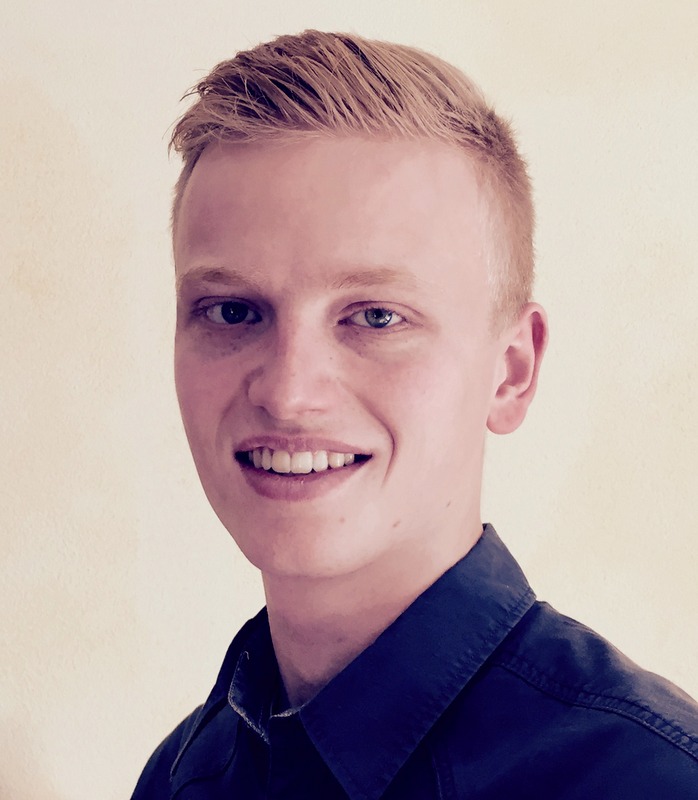
Felix Brentrup’s blog
Part 1: Lalibela – the New Jerusalem in the Ethiopian highlands
In the spring of 2016, I asked myself what I was going to do after graduating from high school, the answer was quite clear to me. Before starting my studies at university, I wanted to work as a volunteer in Africa. How I got to this decision I am still not fully aware of. Presumably, it was a mixture of interests in other cultures, wanderlust, adventure, and some idealism. After actually holding the graduation certificate in my hands, I started looking for an adequate position at a suitable organization. It was hard. I could not find a place that corresponded to both my ideas and their requirements. I was just about to give up when – by pure coincidence – I came across Peter Bachmann and his foundation. I wrote to him and at the end of September we met for the first time. We swiftly agreed that I would travel on behalf of his foundation to Ethiopia and Kenya for a few months. The first station was planned to be Lalibela, a small city in the northern Ethiopian highlands.
Two months later I boarded a plane in Zurich and 13 hours later landed in another world. The drive from the airport to the city felt like in a movie. Apart from a few badly asphalted sections the road is dusty and full of potholes. In addition to the minibuses of the hotels and the tuck-tucks, which have spread here over the last 5 years, the many farmers who lead their sheep, goats and donkeys to the next green spot mainly use it. The road is lined with dry fields and tiny mud huts with thatched roof occasionally appearing. These so-called tukuls are the traditional housings, which can also still be found in the middle of the city as well.
Lalibela, a city at an altitude of over 2,500 meters above sea level and famous for its rock-hewn churches, was once called Roha. It was later renamed after the builder of the main part of the rock churches, King Lalibela (c. 1185-1225 AD). After Muslim rulers conquered Jerusalem, he wanted to make a new Jerusalem out of Roha, his hometown. Even the river through Lalibela, which is a brook out of the rainy season, is called Jordan, after the river where John the Baptist baptized Jesus. To this day, Lalibela is one of the holiest cities and most important pilgrim places of Ethiopian Orthodox Christianity.
Naturally, the rock churches also attract foreign tourists. For this reason, there are more than 30 hotels in this city with just 40,000 inhabitants – all of which are way too expensive for local pilgrims. The hotels are islands of prosperity in this otherwise bitterly poor city. There is no industry and no trade here. The only way to earn some money is with tourism, which has fallen by 98 % due to political unrest and armed conflicts in neighbouring countries. I would lie if I were to assert that it did not affect me, who had never seen absolute poverty before. No matter where you look, you see it. Ten-headed families live in tiny houses without electricity and running water, run around with torn clothes and broken shoes, and would starve to death if there were no aid organizations such as Plan International or the Peter Bachmann Foundation (PBF).
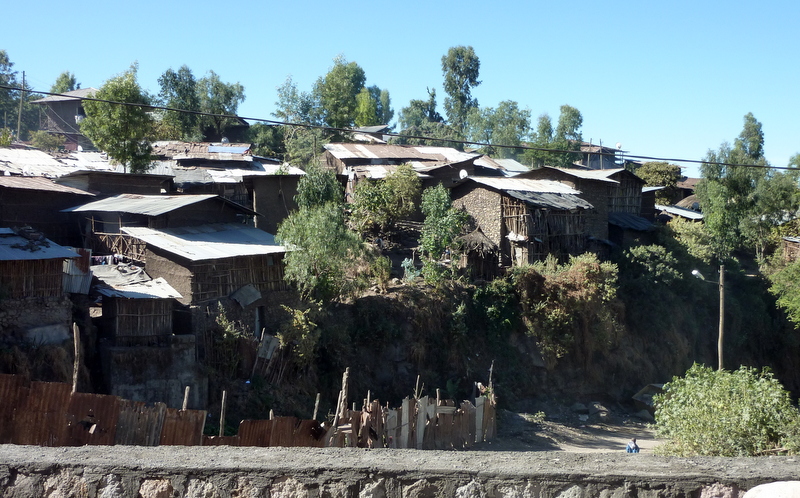
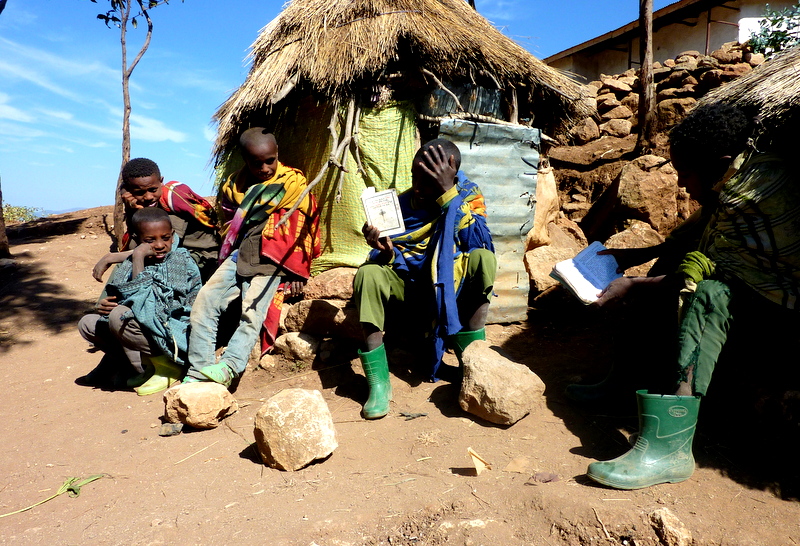
PBF plays a very special role in Lalibela. 12 years ago, the founder of the foundation, Peter Bachmann, came to Lalibela for the first time. Shortly thereafter, the first project was launched. In the meantime, there are more than 60 of them from scholarships to work for the elderly and job creations through the start-up and support of small businesses. Peter Bachmann himself has come to fame here. For the inhabitants of Lalibela, he and his foundation are often the last hope for a better life. When Peter Bachmann came here to Lalibela in January, there was an absolute state of exception. Within a few days, the knowledge of his presence has spread all over the city. More than a hundred needy people, including elderly, sick and blind, besieged the PBF office for a few days and nights in order to be able to speak with him in the hope that he might solve their problem.
The other day, I was asked whether I ever regretted coming here. I could deny it without lying. Surely it’s not all perfect. The food, for example, one has to get used to and, of course, I miss my home in Switzerland every now and then, but the good sides clearly prevail. No matter where you are in Lalibela, you always have a wonderful view of the beautiful surrounding mountains and valleys. It is also very pleasant with a good 20 degrees C. at very low humidity, but above all I felt very comfortable thanks to the incredible hospitality and warmth of the people. Within a short time I became friends with some, so I never had to feel alone at all. For example, my friends here worried that I might feel lonely on Christmas Eve and, therefore, organized a little “surprise party” for me, even though they celebrate Christmas on January 8th only.
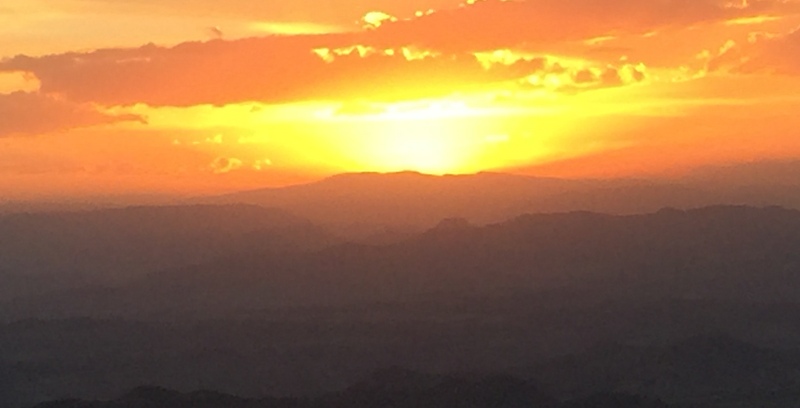
The Ethiopian Christmas celebrations, here called Genna, are a very special spectacle. As already mentioned, Lalibela is one of the most important pilgrimage places of Ethiopian Orthodox Christianity. According to the government, this year about 200,000 pilgrims from all over the country entered into this not really big city in the Ethiopian highlands. There are 5 pilgrims to each inhabitant. It is just incredible to see how many people populate this small place. Everywhere you see pilgrims in their traditional white robes. A part comes in crowded buses or on loading bridges of lorries. The large part, which cannot afford such means of transport, comes however on foot. They have most often been on difficult laborious marches for weeks before they arrive in New-Jerusalem – as Lalibela is also called. They stay here for two to three days and celebrate Genna. The pre-Christmas evening and the Christmas morning they spend in the churches, where hours of worship are held. Thereupon they celebrate with their family and friends, drink Tella, an Ethiopian beer specialty, sing and dance.
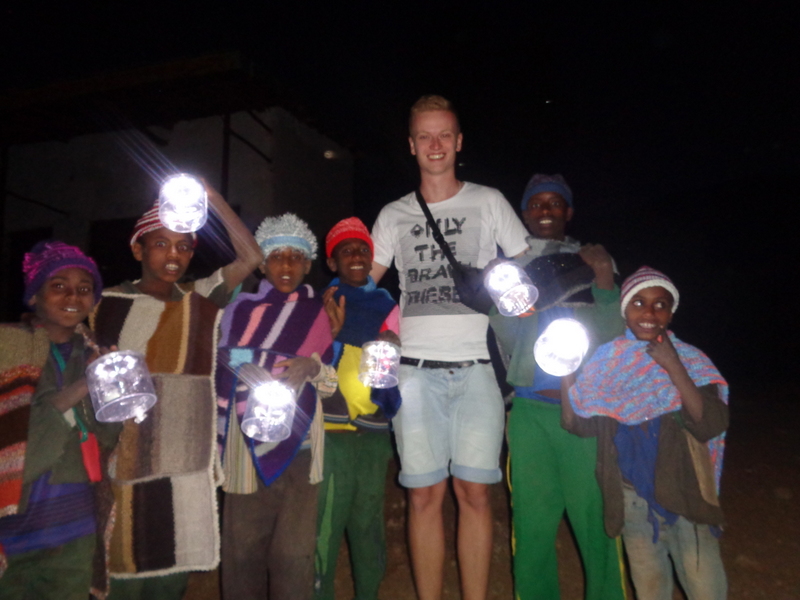
For Genna, youths – including several PBF members – regularly organize groups that receive the many pilgrims after their long journey. They wash and care for their wounded feet, and provide them with water and food. Some even offer them a place to sleep in their own home.
Unfortunately, however, everything is not as Christmas-like as it seems at first. Armed with bats and Kalashnikovs, the military and police patrol the city. That is new. However, the reasons are obvious: After the protests of the past few months, Ethiopia’s dictatorial government fears that protests could be repeated at all major gatherings. The enormous presence of security forces serves on the one hand to intimidation and on the other hand, arising unrest can be stifled in the bud.
In addition, as can be guessed, there is also an economic boom in Lalibela every year at this time. The entire city is transformed into a market. The streets are lined with small stands, where one can buy everything from sunglasses to traditional robes, to crosses and other religious objects. The hotel rates are also multiplying. A single room under $ 130 per night, which is a good monthly salary, is not to be found. Only the richest can afford such prices. Pilgrims, who do not have relatives in Lalibela where they can go, sleep in improvised tents or even open air around the churches even though it gets very cold in the night. For this reason, PBF plans to build a centre called the Amanuel Pilgrims Village, providing basic medical care, meals and shelter for the most in need of any kind, and as the name implies for pilgrims as well.
So far, the hospitality, for which Ethiopian culture is so well known, must give way to business in the Christmas season. Nevertheless, it is this hospitality, which I will remember most of all. Even when I will shortly leave Lalibela after 2 ½ months, I am sure I will return to this place. Lalibela is only poor in the economic sense, in all other matters, be it nature or culture, Lalibela is more than rich!
